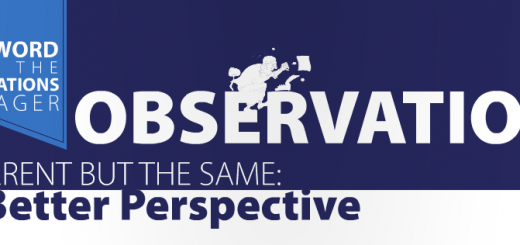Ten Lessons for the Aspiring Music Educator
by Katie Safa, Eta Zeta, ΤΒΣ, University of Kentucky

Senior music education major at the University of Kentucky and member of the Eta Zeta chapter of TBS
Attending the Conn-Selmer Institute (CSI) in Mishawaka, Indiana was an eye-opening experience that allowed me to better prepare myself as a future music educator.
Numerous sessions led by renowned educators and administrators deepened my understanding of teaching and advocating for music in our schools. The following ten objectives reflect what I feel were the most important topics covered at CSI for aspiring music teachers.
1. Never lose sight of the long-term goal. The fundamental goal of any music educator should be to instill a lifelong love and appreciation of music within their students. Not every child will grow up to become a professional musician or direct a music program, and most importantly, these examples do not represent the most successful outcomes of musical instruction. Actually, the purpose of music education is to offer a creative outlet that will ideally remain a part of each student’s life well beyond the school years.
2. Promote a culture of excellence. Your behavior as an educator should always promote a culture of excellence in your classroom, your school, and your community. A teacher of any kind is a role model. Therefore, setting the best example for your students as a person and as a musician is absolutely essential. Be kind, optimistic, and appreciative. Approach each rehearsal with specific goals in mind and have a plan to reach those goals. Don’t let limitations or previous failures prevent you from being the most effective educator you can possible be.
3. State your expectations clearly and in writing. Ensure that students understand your classroom expectations by explaining them verbally and in writing. You should expect your students to be respectful and prepared for each rehearsal. All eyes should be on you when you are speaking, and there should not be any playing or singing unless students are instructed to do so. I highly recommend developing a handbook for your program to distribute to both students and parents. Include descriptions of the attendance policy; personal practice requirements; how to appropriately enter and exit the classroom; where to store instruments, music, and other classroom materials, etc.
4. Tackle one thing at a time. Unfortunately, the human brain is not designed to multitask. Consequently, the most productive way to rehearse an ensemble is to focus on addressing issues in a sequential manner. The number one priority should always be to have a good sound, and only then should you approach other concerns such as rhythm, dynamics, and style—one thing at time. Attempting to correct too many problems at once will only lead to mediocrity and frustration for both you and your students. Remember, making improvements can be a time-consuming process, but slow and steady wins the race.
5. Expect results. Don’t be afraid to have high expectations for your students, whether it is musically, behaviorally, academically, socially, etc. Take pride in all of your students’ accomplishments and push each and every one of them to reach their full potential–not only as musicians, but also as human beings. The impact you can have on a student’s life may very well surprise you.
6. Develop positive and professional relationships with administrators. It is absolutely vital for any music educator to have the support of their school administration. On your first day of work, be sure to thank the principal again, in person, for giving you the opportunity to teach at their school. Throughout the school year, invite your administrators to attend concerts, travel with your group, and even be a part of performances (e.g., conducting the school fight song at a public event). Keep them updated on what’s happening in your program, such as upcoming competitions and performances. Lastly, it’s a great idea to provide your administrators with spirit wear (T-shirts, sweatshirts, etc.) each year.
7. Develop positive and professional relationships with parents. Parent volunteers are an invaluable resource for any music program. You WILL need assistance with tasks such as organizing fundraisers, uniform fittings and/or alterations, and chaperoning trips, among other things. Hold a meeting at the beginning of the school year in order to (1) meet your students’ parents, and (2) gather information from those who may be interested in volunteering and/or joining the booster program. Nurses, doctors, carpenters, seamstresses, and accountants can be especially helpful. Remember, it’s YOUR job to direct the program; the purpose of having parent volunteers is so that you can focus on teaching their children.
8. Keep a repertoire log. Cataloging your program’s repertoire will allow you to maintain an organized music library, which is extremely helpful when programming for concerts and assessments. Be sure to the include the title of the piece, composer, arranger, tempos, key signatures, time signatures, style(s), overall form of the piece, and grade (as assigned by the publisher). In addition, add your own personal evaluation of the piece, such as the likelihood of performing it again, any particularly problematic areas, featured soloist, etc. One easy way to store this information is in a spreadsheet that can be easily searched or sorted for the type or level of music you are looking for.
9. Provide opportunities for musical enrichment. Help your students develop their musical skills in ways other than rehearsing as an ensemble. For example, encourage ALL of your students to take private lessons, not only the most talented ones. Every child has the capacity to learn and to improve as a musician, and the benefits of private instruction will have a noticeable impact on the sound of your ensembles. In addition, invite students to the podium during rehearsals to conduct the ensemble, such as a warm-up exercise or chorale. If possible, take your students to live performances (e.g., local symphony orchestra concert) in order to expose them (and hopefully, to inspire them) to a high level of musicality.
10. It’s OK if you don’t have all the answers. When you are unsure of the correct answer to a question, the best thing to do is to simply admit that you don’t know. It’s OK, really. For example, if you do not know how to respond to a student’s question, an appropriate response would be “I’m not sure. Let’s find out.” Becoming a seasoned educator is a learning process, and there will always be something new to discover. In many cases, you’ll be learning right alongside your students about how to adjust your teaching strategies and ultimately enhance your effectiveness.
The sheer amount of information you will learn in just over three days is well worth the cost of attendance, not to mention the fantastic food and phenomenal performances. Registration for CSI 2016 is already open and scheduled to take place once again at Bethel College in Mishawaka, IN from June 12-15.




